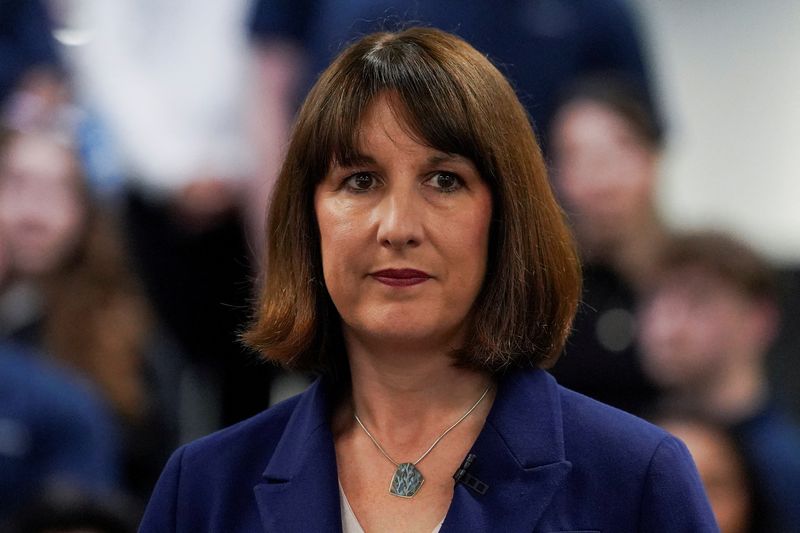New UK government cuts billions of pounds of spending to fix ‘unsustainable’ public finances

By David Milliken and Kylie MacLellan
LONDON (Reuters) – Britain’s new finance minister, Rachel Reeves, on Monday announced spending cuts worth more than 13.5 billion pounds ($17.3 billion) over the next two years to help plug what she said was a 22 billion pound overspend caused by the last government.
Reeves said she would present a full budget on Oct. 30, the first by the newly-elected Labour government, and said it would include further “difficult decisions” including on tax.
The new government has also accepted independent recommendations on increasing pay for state workers such as teachers and healthcare staff at a cost of 9 billion pounds.
In a statement seen by critics as an attempt to pave the way for future tax rises, Reeves accused the former Conservative government of covering up the true state of government spending and said she needed to make difficult decisions to prevent the budget deficit ballooning by 25% this year.
“This level of overspend is not sustainable. Left unchecked, it is a risk to economic stability,” Reeves told parliament. “It therefore falls to us to take the difficult decisions now to make further in year savings.”
She set out cuts to a range of projects to build roads and restore railways and said the government would review a scheme to rebuild hospitals. She also said she would stop higher-income pensioners from receiving an annual payment for heating costs.
Elected to run the world’s sixth-largest economy in a landslide victory on July 4, Labour has spent much of its first three weeks in power telling voters that things are worse than expected in almost every area of public policy.
Reeves commissioned the review of the public finances upon taking office.
“They gave false hope to Britain when people were already being hurt by their cost of living crisis. The inheritance from the previous government is unforgivable,” she said.
“They promised solutions that they knew could never be paid for: roads that would never be built, public transport that would never arrive, hospitals that would never treat a single patient.”
The Conservatives dismissed her accusations as a pretext for Labour to raise taxes.
“Today’s exercise is not economic, it’s political. She wants to blame the last Conservative government for tax rises and project cancellations she has been planning all along,” said Jeremy Hunt, who was finance minister in the Conservative government.
Some economists have also expressed scepticism, saying Labour could have foreseen most big pressures on spending before taking office.
Reeves stressed that she intends to stick to her party’s election campaign commitments not to raise the rates of income tax, value-added tax and other main taxes.

Any other tax changes would come in October’s formal budget statement, which Reeves said would contain a new set of non-negotiable fiscal rules.
($1 = 0.7795 pounds)





